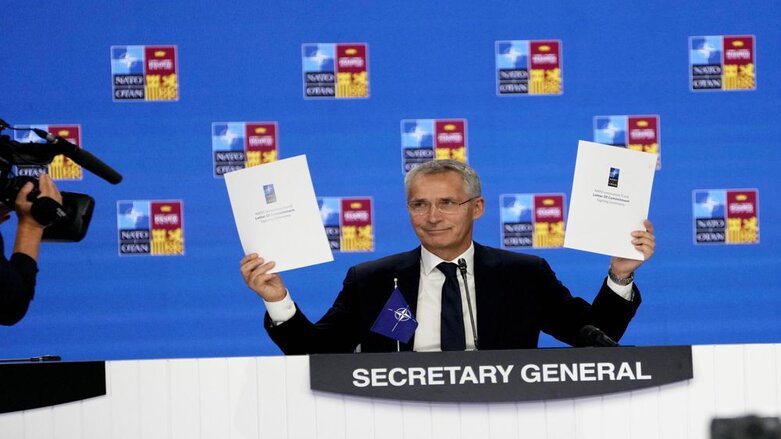NATO reaffirms commitment to continued fight against terrorism in Middle East, Africa

WASHINGTON DC (Kurdistan 24) – Russia’s aggression against Ukraine dominated NATO’s three-day summit in Madrid, which ended on Thursday. But one session—the last—was dedicated to the continued fight against terrorism in the Middle East and Africa.
“Our final session at the Madrid Summit focused on threats and challenges from the Middle East, North Africa, and the Sahel,” NATO Secretary General Jens Stoltenberg explained during a press conference at the summit’s end.
“Insecurity in these regions has a direct impact on the security of all Allies,” Stoltenberg said. “And our new ‘Strategic Concept’ identifies terrorism as one of the main threats to our security,” he stated, referring to NATO’s just-issued doctrinal report, ‘Strategic Concept 2022’.
“Today, we reviewed our progress in the fight against terrorism,” Stoltenberg continued as he briefed the press on Thursday, “and we reconfirmed our commitment to continue the fight [against terrorism] with determination and solidarity, including through intelligence sharing and support for our partners.”
In this regard, Stoltenberg cited NATO’s activities in four Middle Eastern or African countries, starting with Iraq.
“NATO’s training mission in Iraq is helping to prevent the return of ISIS,” he said. He also stated that for the first time, NATO had agreed to “a defense capacity-building package for Mauritania,” which will help “to address border security, irregular migration, and terrorism” challenges in that country.
In addition, NATO has just agreed on “additional capacity building support for Tunisia,” while it will “continue supporting Jordan,” Stoltenberg stated.
NATO’S NEW ‘STRATEGIC CONCEPT 2022’
The just-issued ‘Strategic Concept’ will guide NATO’s planning, deployments, and procurement. The last such document was published 12 years ago, when Russia appeared benign, and it spoke of the development of a “strong and constructive partnership [with Russia] based on mutual confidence, transparency and predictability.”
By contrast, “Strategic Concept 2022” states, “The Russian Federation’s war of aggression against Ukraine has shattered peace and gravely altered our security environment,” as it states, “The Russian Federation is the most significant and direct threat to Allies’ security and to peace and stability in the Euro-Atlantic area.”
The second most significant threat is terrorism, as “Strategic Concept 2022” explains. “In all its forms and manifestations,” terrorism “is the most direct asymmetric threat to the security of our citizens and to international peace and prosperity,” it states.
Referring to terrorist groups, “Strategic Concept 2022” states, “They have expanded their networks, enhanced their capabilities and invested in new technologies to improve their reach and lethality.”
“Non-state armed groups, including transnational terrorist networks and state-supported actors, continue to exploit conflict and weak governance to recruit mobilize and expand their foothold,” it continues.
NATO MISSION IRAQ
NATO has posted an updated factsheet on its NATO Mission Iraq (NMI) on its website. It states that NATO has a “non-combat advisory and capacity-building mission” in Iraq, which includes “several hundred personnel from Allied and partner countries, including Australia, Finland and Sweden.”
“The mission was launched at the NATO Summit in Brussels in July 2018,” it says, following “a request from the government of Iraq.” In October 2018, the mission began working in Iraq. In February 2021, NATO Defense Ministers agreed to an Iraqi request to expand their mission.
Interestingly enough, as the fact sheet explains, NATO has been helping Iraq deal with the COVID-19 pandemic.
